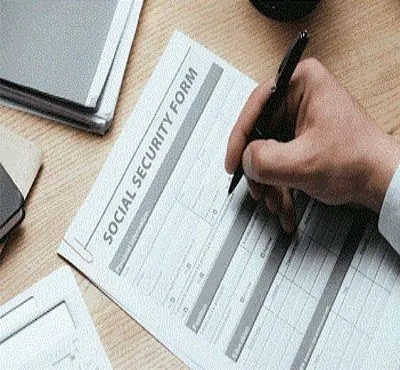We do not request reimbursement of costs
(such as repayment for obtaining medical records)
from veterans nor from people who suffer from multiple sclerosis.
- Call today for a free evaluation
- 1-888-774-7243
What You Should Know If You Work While Receiving SSA Benefits
Although the Social Security Administration may be most well-known for its retirement programs, it can also help you return to work when you are disabled. For millions of people, work is a source of income and an essential part of their identity; it gives them purpose and pride, as well as a connection to the community.
Is it legal for people with disabilities to work?
Yes, it is legal for people with disabilities to work, and it is even encouraged. The Social Security Administration (SSA) helps people with disabilities find jobs through work incentive programs. Disabled workers are allowed to work and concurrently receive benefits, and the amount they may earn depends on several factors. The two primary forms of assistance, Supplemental Security Income (SSI) and Social Security Disability Insurance (SSDI), work very differently.
If you receive Social Security benefits, there is good news for you. If you are interested in working, the Social Security Ticket to Work Program and other incentives programs can help. Special rules allow people who receive Social Security benefits to work as they continue to receive monthly payments.
Social Security work incentive plans and requirements
 The two main Social Security work incentive programs are the Plan to Achieve Self-Support (PASS) and Ticket to Work. Both are free and voluntary. Only SSI beneficiaries are eligible to participate in the PASS program. Participants set work goals, which may include starting a business, going to college, or learning new skills.
The two main Social Security work incentive programs are the Plan to Achieve Self-Support (PASS) and Ticket to Work. Both are free and voluntary. Only SSI beneficiaries are eligible to participate in the PASS program. Participants set work goals, which may include starting a business, going to college, or learning new skills.
Once the SSSA approves the person’s plan, all expenses related to achieving the PASS goals may be deducted from one’s income, allowing SSI recipients to earn more money and retain their cash benefits. Beneficiaries may be eligible to join Ticket to Work, as well. If you want to work, the Ticket to Work Program can help. You can receive the following benefits:
- Free vocational rehabilitation
- Training
- Job recommendation
- Other types of job support.
These programs may include the following benefits, which can give you much-needed relief:
- Continuous cash benefits during the work period
- Continuous medical insurance or medical assistance during the work period
- Assistance in education, training, and rehabilitation to start a new job
SSI and SSDI: What is the difference?
To qualify for either plan, the Social Security Administration first uses specific definitions to determine whether the applicant has a disability.
According to the SSA, an applicant may be disabled if they are:
- Completely disabled, not partially or eligible for short term disability
- Unable to do the jobs they could perform before they became disabled
- Unable to adapt to other jobs because of their physical condition
- Experiencing a health issue has lasted for at least one year or will likely result in death
What is acceptable while you are working?
- As long as you continue to meet the SSA’s definition of disability, your monthly income can be less than $1,310, which is the substantial gainful activity (SGA) level in 2021. This answer refers to recipients of SSDI; the amount of income you may earn and continue to qualify for SSI is different.
This SGA restriction allows many disabled beneficiaries to do some part-time work. For example, if you work 16 hours a week and earn $16 per hour, your monthly income is approximately $1,100, which is less than the SGA amount. As long as your disabling conditions do not improve enough to work full-time, you should be able to continue receiving your SSDI benefits.
- A number of Social Security programs allow you to continue receiving disability benefits and, at the same time, encourage you to try to return to work.
- In a continuous period of 60 months, you can work for a total of nine months, and these nine months will be counted as a trial period. At the end of the trial period, if you continue to work, your benefits may end if the Social Security Office finds that your income exceeds the SGA level.
If you are receiving disability benefits, you should inform the SSA immediately when you start or stop working, or if any other changes occur that may affect your eligibility. When you return to work but cannot continue to work because of your health, your benefits may start again, and you may not have to submit a new application.
It is always recommended to contact an experienced Social Security disability attorney who can help you through the entire process and improve your chances of a positive outcome. Contact us for a smooth transition.
For a Free Evaluation
Monday : 9am–5pm
Tuesday : 9am–5pm
Wednesday : 9am–5pm
Thursday : 9am–5pm
Friday : 9am–5pm
Saturday : Closed
Sunday :Closed

